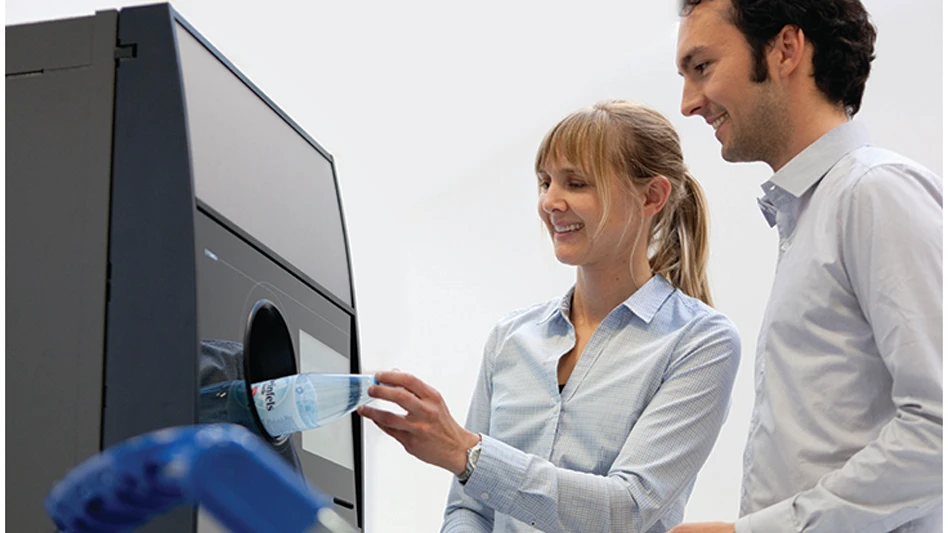
Photo courtesy of Tomra Systems ASA
Would the chance of winning a $1,000 by returning an empty beverage container boost the container recycling rate in a jurisdiction compared with offering a straight 10-cent refund on a 10-cent deposit?
A study conducted at the University of British Columbia in western Canada found that people preferred the chance to win $1,000 over four other options presented and they felt the happiest after making this choice, according to two university staff members involved in the study.
The study, “Probabilistic refunds increase beverage container recycling behaviour in British Columbia and Alberta, Canada,” is available on the ScienceDirect website.
Zhao Jiaying and Jade Radke of the University of British Columbia, who helped author the study, say they conducted the study in part because of existing psychology research they say shows that people tend to prefer a small chance to win a large reward over a guaranteed small reward.
In an online synopsis of the study published this month on The Conversation website, Zhao, Radke and their colleagues set up recycling tables at a food court in Vancouver and at a special event near Edmonton, Alberta.
Household consumers who brought beverage containers to those tables to recycle were presented with the option of a like-for-like deposit refund or a chance to win a larger amount of money, the highest option being $1,000.
“We found that people brought 47 percent more beverage containers when we offered them a chance to win $1,000 than when we offered them the guaranteed refund," they say.
“Overall, our findings suggest that offering a chance to win a larger amount of money can meaningfully boost beverage container recycling. The excitement of a potential big win can motivate people who may not be enticed by the typical small, guaranteed refund.”
The study has real-world precedents, as well, the researchers point out.
They say in Norway, a recycling lottery has attracted a 39 percent participation rate from people choosing the lottery option when they recycle. In 2023, those participants achieved a 92.3 percent container return rate.
“A one-size-fits-all approach won’t work. People recycle for different reasons. They also have different risk tolerances, and some may rely on the guaranteed refund for additional income," Zhao and Radke say. "To capture diverse preferences and needs, it’s vital that the lottery-style refund is offered in addition to the guaranteed refund, not instead of it.”
Get curated news on YOUR industry.
Enter your email to receive our newsletters.
Latest from Waste Today
- Denali makes acquisition in South Carolina
- NWRA, SWANA review solid waste collection fatalities
- Hoffman Sanitation Services makes fourth acquisition of 2025
- WM now accepts to-go cups in curbside recycling
- Miller Environmental Group makes Maryland acquisition
- Haulvana links with Xplor Pay
- Landfill Insights: Using a mass diagram to monitor waste volume on a transfer station floor
- Reconomy adds to US holdings





